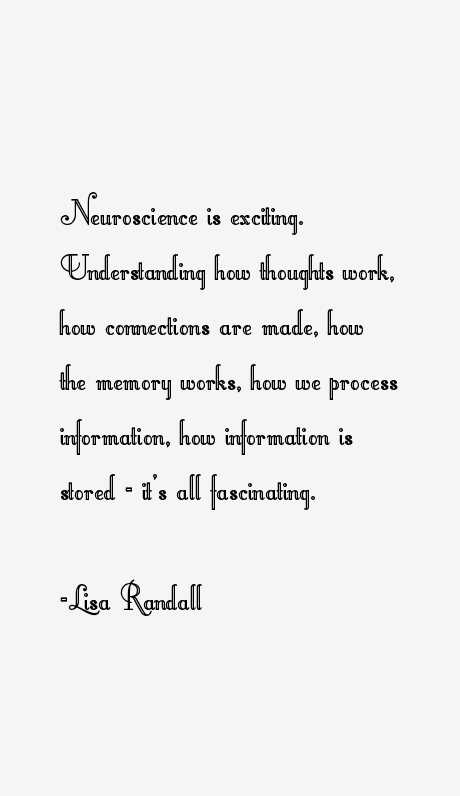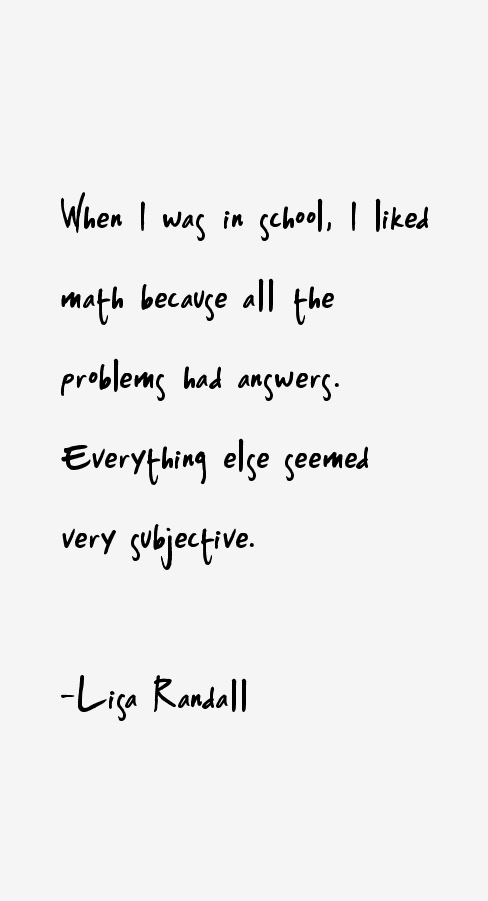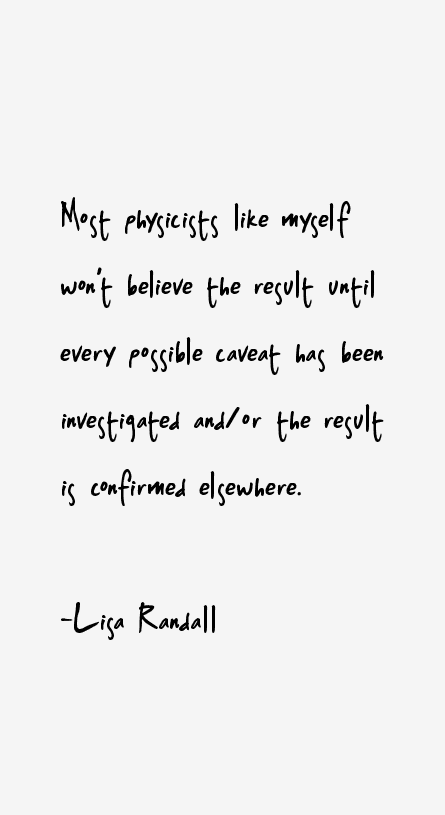Lisa Randall Quotes & Sayings (Page 3)
Lisa Randall quotes and sayings page 3 (physicist). Here's quote # 21 through 30 out of the 58 we have.

“When you're reaching out to people beyond the scientific community, image does matter.”

“Neuroscience is exciting. Understanding how thoughts work, how connections are made, how the memory works, how we process information, how information is stored - it's all fascinating.”

“When I was in school, I liked math because all the problems had answers. Everything else seemed very subjective.”
“I actually like seeing how the world - trying to figure out how the world works, how it all fits together. Also, it makes me happy when I feel like things are consistent, when there's some sort of order to the universe.”

“The standard model of particle physics describes forces and particles very well, but when you throw gravity into the equation, it all falls apart. You have to fudge the figures to make it work.”
“What I do is very theoretical. It won't necessarily have implications for anything anyone is doing tomorrow, yet you know that there's a sense of progress in science, and as we understand more, it just turns out that, somehow, the world evolves with us.”
“I do theoretical particle physics. We're trying to understand the most basic structure of matter. And the way you do that is you have to look at really small distances. And to get to small distances, you need high energies.”

“The scientist is also a composer... You could think of science as discovering one particular thing - a supernova or whatever. You could also think of it as discovering this whole new way of seeing the world.”
“There could be more to the universe than the three dimensions we are familiar with. They are hidden from us in some way, perhaps because they're tiny or warped. But even if they're invisible, they could affect what we actually observe in the universe.”

“Most physicists like myself won't believe the result until every possible caveat has been investigated and/or the result is confirmed elsewhere.”
Lisa Randall Quotes Rating
No Ratings Yet
Leave A Comment
























